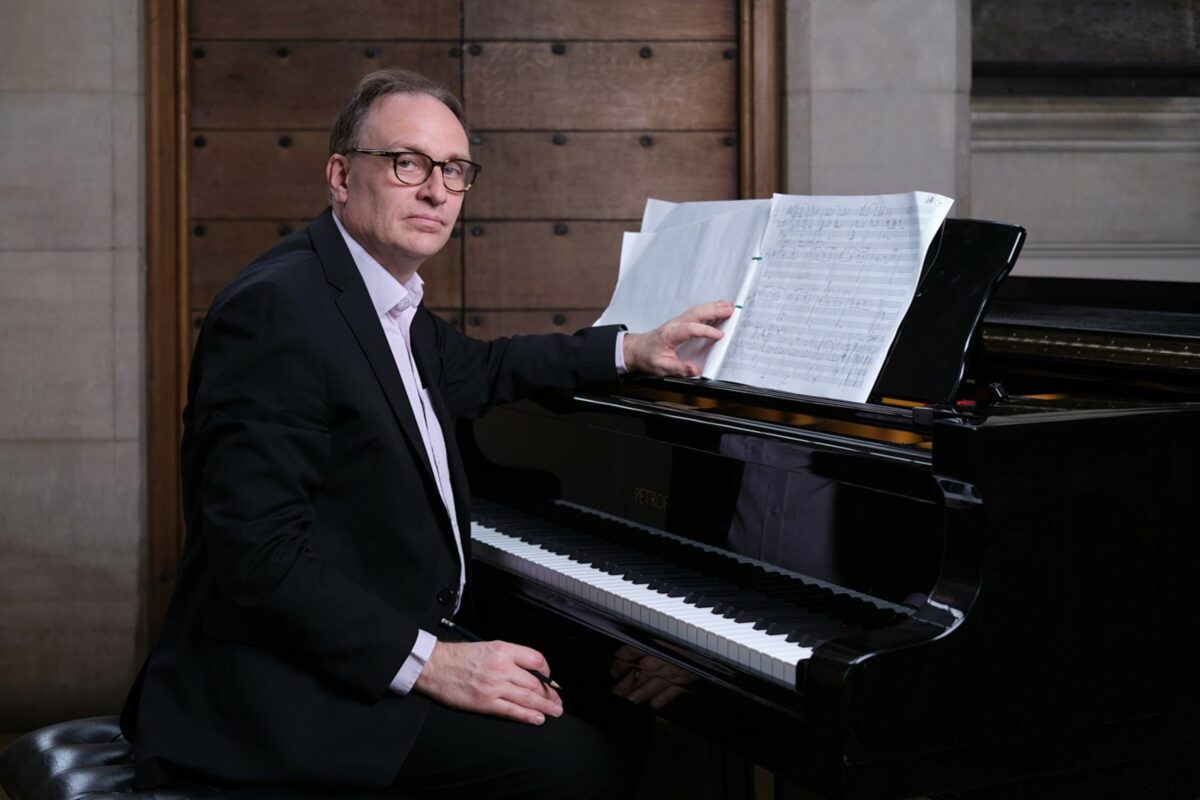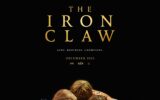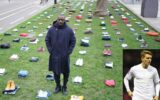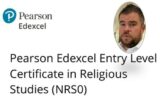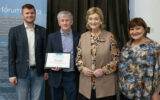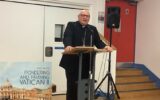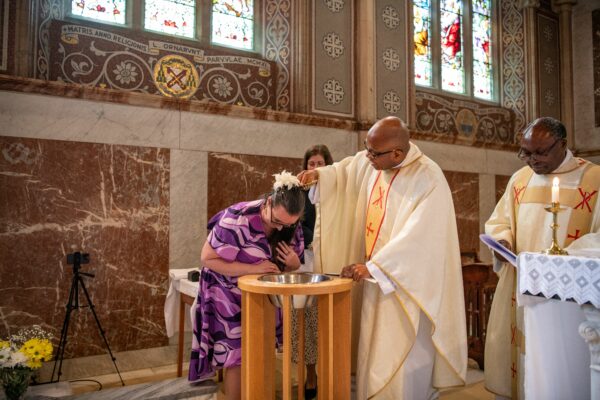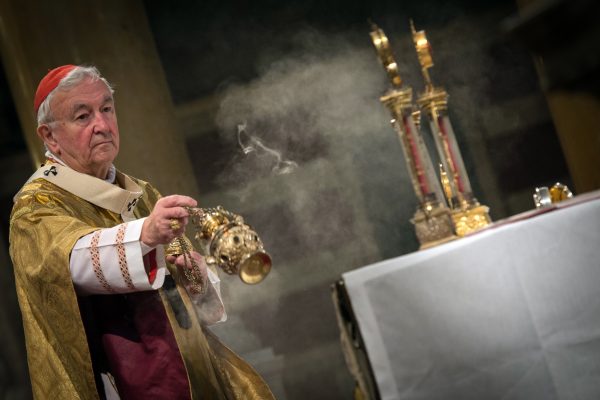By Suresh Abboodass
Dr. Frederick Stocken, who till recently was the organist in St. George´s Metropolitan Cathedral in Southwark, London, says he is inspired by the Holy Spirit in his work as a music composer.
Dr Stocken, who left St. George´s Cathedral last year to concentrate more on his passion for composing music, had been the main organist for nearly a decade. He has played the organ for many main and historical events which included Live BBC One and Radio4 broadcasts for Christmas nights and the recent 175th Anniversary of the establishment of St. George´s Cathedral, for which he composed a special music titled “The Wisdom of Christ”.
He has also played the organ for the funerals of three Archbishops of the Archdiocese of Southwark.
He spoke exclusively to the Universe Catholic Weekly.
Frederick joined as a young chorister, aged only nine in Southwell Minister Nottinghamshire. He started learning the piano when he was just six years old, and the organ when he was about eleven.
When asked what inspires him to compose music, he replied: “To me composing music is a form of prayer, a chance to get in touch with the Almighty. It is the Holy Spirit that inspires me. My head is full of music and I want to get that out. Music envelops me and I get lost in it.”
“I normally start my composing early in the mornings when it is very quiet. I have an idea and I work on the piano,” said Dr. Stocken, who started composing music when he was only ten years old.
One such idea was ´The Wisdom of Christ´-a musical score for the special occasion to celebrate the 175th Anniversary of the establishment of St. George´s Cathedral Southwark last November.
“I was asked to compose a piece for the occasion of the anniversary. For this I had to set a theme and it had to be something relevant. It was at this point I thought of the idea of the late Pope St. John Paul the second´s homily delivered at the St. George´s Cathedral on the occasion of his visit in 1982. In his homily I came across these words: “Wisdom of Christ”. So, these words of Pope John Paul inspired me to compose my music for that occasion,” he said.
Frederick was very pleased with how well the score was received.
Frederick´s music reached an international audience when he was asked to write the “Lament for Bosnia” by the New Queens Hall Orchestra back in 1993. It was a proud and poignant moment for him, as he also conducted it in front of a big audience in the capital Sarajevo, at the initiative of the Bosnian government in 2000.
This piece is also very close to Frederick´s heart, as the whole work was inspired by the memory of his grandmother Rosa who tragically perished in Auschwitz.
Listening to “Lament of Bosnia” is something special. It puts Frederick´s composition on a different level, conveying a divine feeling as the listener hears its soothing score. What has Frederick the composer to say about it?
“I can´t put it in words,” he said. “I felt something godly at it, a good foreboding; a combination of therapy and self-expression.”
Soft spoken and extremely charming, Frederick is proud to talk about his Jewish roots. His parents were Anglican. It was only in the 1950s that his mother discovered her Jewish roots, and learnt about his grandmother who tragically perished in Auschwitz.
“I am still affected by it,” he said. Disillusioned by the Anglican Church, as well as by the orthodoxy of his Jewish relatives, Frederick converted to Catholicism in 1996, when he was in his mid-twenties, and has never looked back.
Despite having composed two Symphonies, a violin concerto, a ballet, organ and choral pieces, Frederick is a very modest and quiet person who is very careful not to blow his own trumpet.
Fifty-six-year-old Frederick has many achievements to his credit. He has invented a ´diagrammatic method ‘for learning keyboard scales, which are published as “Scale Shapes”,using the ´Stocken Method´(Chester Music) now in its third revised edition.
Frederick, whose Doctorate from the University of Manchester on the 19th century Music Theory, particularly related to the music of Anton Bruckner, has also co-produced a two volume “Graded Keyboard Musicianship (OUP) and the “New Oxford Organ Method (OUP) with Anne Marsden Thomas.
For both publications, Frederick composed all the original music.
Frederick´s long list of commissions (17 in total) include Rikkyo University Tokyo, the Stadttheater in Giessen, Germany, and Southern Cathedrals Festival.
His orchestral works have been performed at the Royal Albert Hall, St John´s Smith Square and the Barbican. Orchestras that have played his music include The New Queen´s Hall Orchestra, the Sarajevo Symphony Orchestra and the Royal Philharmonic Orchestra.
He has also been supporting organ studies in the organ department of the Royal Academy of Music for eight years and still continues to teach organ in the Junior Academy. Frederick´s organ works have been performed in recitals in King´s College, Cambridge. His choral music has been sung by the choirs of Chichester Cathedral and the London Oratory.
He can also play the flute and his teacher, Kenneth Beard from the Chethams School of Music, from whom he learned the organ and composing, had a great influence on him.
Frederick said it was a difficult decision to leave St. George’s, as he had built a very good working relationship with many of his colleagues, including the Director of Music Mr Jonathan Schranz, and also with his predecessor Mr Norman Harper.
Dr. Frederick´s work and music can be accessed on his website: www.frederickstocken.com


